You are here
Speakers
Gary Howard

Gary R. Howard has over 40 years of experience working with issues of civil rights, social justice, equity, education, and diversity, including 28 years as the Founder of the REACH Center for Multicultural Education. He is a keynote speaker, writer, and workshop leader who has worked extensively throughout the United States and Australia. Mr. Howard completed his undergraduate studies in Cultural Anthropology and Social Psychology at Yale University and did graduate work in ethics and social justice at Yale Divinity School. He has served as an Adjunct Professor at both Western Washington University and Seattle University. He holds a masters degree in education.
Mr. Howard has provided extensive training in cultural competence and culturally responsive practice to schools, universities, social service agencies, and businesses throughout the United States and Australia. He is the author of numerous articles on race, justice, and multicultural issues and has developed collections of curriculum materials that are being used internationally. His most recent book, We Can't Teach What We Don't Know (Second Edition, 2006), was published by Columbia University and is considered a groundbreaking work examining issues of privilege, power, and the role of White leaders and educators in a multicultural society.
The central focus of Gary Howard’s current work is to lead intensive Equity Leadership Institutes that provide educational organizations with the internal capacity to deliver high quality professional development for social justice and systemic change. Mr. Howard is frequently asked to deliver keynote addresses at regional and national conferences. In these presentations he draws on a wide range of experiences and travel exploring diversity and social justice issues with leaders from many cultures around the world. Mr. Howard's speeches employ rich imagery and stories drawn from his experiences in a multicultural/multiracial family and from his many years leading white water diversity workshops on the Colorado River in the Grand Canyon.
Glenn Singleton

Glenn Eric Singleton hails from Baltimore, Maryland. A product of public elementary and independent secondary school, Singleton earned his bachelor’s degree from the University of Pennsylvania and his master’s degree from the Graduate School of Education at Stanford University. Singleton began his career as an Ivy League admissions director. In 1992, he founded Pacific Educational Group, Inc. (PEG) to support families in their transitions within and between K–12 and higher education. His company rapidly grew into a vehicle for addressing systemic educational inequity by providing a framework, guidance, and support to K–12 systems and institutions of higher education focused on meeting the needs of under-served students of color.
Singleton and his associates at PEG design and deliver individualized, comprehensiveprofessional development for educators in the form of training, coaching, and consulting.Working at all levels, from beginning teachers to superintendents at local, state, and national levels, PEG helps educators focus on heightening their awareness of institutional racism and
implementing effective strategies for eliminating racial achievement disparities in schools. In 1995, Singleton developed Beyond Diversity, a widely recognized seminar aimed at helping administrators, teachers, students, parents, and community stakeholders identify and examine the intersection of race and schooling. The Beyond Diversity seminar is the foundation for the PEG Systemic Racial Equity Framework and its theory of transformation, which focuses on leadership development, teacher action-research, and family/community empowerment. Today, participants around the world use Singleton’s COURAGEOUS CONVERSATION Agreements, Conditions and Compass, introduced to them in Beyond Diversity, as they strive to usher in culturally proficient curriculum, instruction, and assessment.
Over its 20-year history, PEG’s scope of work has expanded to include online professional learning, independent school partnerships, and international efforts in Canada, Australia and New Zealand that focus on achieving educational equity primarily for indigenous populations. PEG hosts an annual National Summit for Courageous Conversation, in which scholars, educators, community members, and other stakeholders convene to identify strategies and best practices for creating high-level, equitable learning environments for all students.
Trudy Arriaga
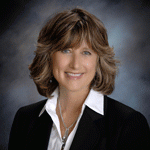
Trudy Arriaga earned her Bachelor and Master degrees, teaching credentials and ultimately a Doctorate from USC in 1993… Fight On! She began her employment in Ventura Unified School District in 1974 as a bilingual paraeducator and has enjoyed 40 years of service to the district. Her journey toward the role of superintendent included paradeducator, teacher, assistant principal, principal and director. Dr. Arriaga is the first woman superintendent of the Ventura Unified School District.
Kikanza Nuri-Robins

Kikanza J. Nuri-Robins, Ed.D. is an organizational development consultant. She has spent her career working with schools, churches, hospitals and not-for-profit organizations helping them to become healthy, productive, diverse and inclusive.Since 1978 she has worked with businesses like IBM and Baskin-Robbins, school districts from New York to California, and nonprofit organizations such as United Way and Girls Scouts of America. The connecting thread is her passion for working with people who care about the quality of their work, who have compassion for their clients and colleagues, and who understand the importance of appropriate responses to the cultural context when doing their work. She has taught elementary school, secondary reading and in schools of education and public administration. She is currently consulting with the nursing faculty at the University of Texas Health Sciences Center, the Oxnard, CA Police Department , and a domestic violence family center. Read more about Kikanza and the titles she has authored at http://www.corwin.com/authors/524991.
Dwayne Williams
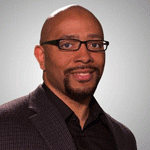
Dwayne is the founder and CEO of Tier 1 Educational Coaching and Consulting Firm. He earned a bachelor’s degree in psychology from Fairmont State University. He earned a master’s degree in psychology and an Educational Specialist degree from Marshall University Graduate College. Dwayne has studied culture within the context of education for over 10 years and speaks nationally on the topic of culturally responsive problem-solving models and instruction; he coaches teachers and administrators on how to increase engagement among culturally diverse learners by creating models that place the cultural values of students at the center of problem-solving.
Dwayne was raised in housing projects in Springfield, IL, as a young boy, and much of his work is influenced by his experiences with poverty, race, and culture. Dwayne’s first publication is titled A Closer Look at Ruby Payne’s Culture of Poverty Theory, which is a peer-refereed rebuttal article of Ruby Payne’s highly acclaimed book, A Framework for Understanding Poverty.
Dwayne has written five books. His book, An RTI Guide to Improving Performance of African American Students, is the first on the market that integrates RTI principles with African American culture. His curriculum, Like Music to My Ears: A Hip-Hop Approach to Social Emotional Learning, is used by social workers and school psychologists to increase engagement among culturally diverse learners and students who embrace performance arts.
Dwayne is currently a school psychologist with Indian Prairie School District 204, an educational consultant, and success coach. He is most passionate about training educators and service providers on culturally relevant models, including RTI/MTSS models, and "hip-hop social-emotional learning" and writing programs.
Zaretta Hammond
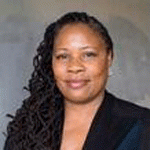
Zaretta Hammond is a former classroom English teacher who has been doing instructional design, school coaching, and professional development around the issues of equity, literacy, and culturally responsive teaching for the past 18 years. She teaches as a lecturer at St. Mary’s College’s Kalmanovitz School of in Moraga, California.
In addition to consulting and professional development, she has been on staff at national education reform organizations, including the National Equity Project and the former Bay Area School Reform Collaborative (BASRC). She has trained instructional coaches in reading development, especially targeted at students of color and English learners. She has also designed national seminars such as the three-day Teaching with A Cultural Eye series for teachers and school leaders. She is regularly invited to present at regional and national conferences. She has authored articles that have appeared in publications such as Phi Delta Kappan.
Along with a focus on culturally responsive teaching, Ms. Hammond has a strong research agenda around literacy, vocabulary development, and equity. She has designed culturally responsive tutor training programs aimed at volunteer reading tutors for a variety of non-profit organizations. She currently designing a literacy program to accelerate low reading skills among high school students. She holds a Masters in Secondary English Education.
She also writes the popular ready4rigor.com blog. Zaretta is the proud parent of two young adult children, both of whom she taught to read before they went to school. She resides in Berkeley, CA with her husband and family.
Wade Colwell-Sandoval
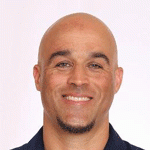
As a creative catalyst, “artivist” and education/leadership consultant, Wade credits his mother Catalina, a painter/sculptor, for fostering an affinity for his indigenous Raramuri roots and his grandfather, Anthony Quinn, a legendary barrier-breaking actor, for modeling passion for artistic expression.
Bridging the arts with education and social justice has been more than a two-decade journey. After receiving a B.A. from Stanford University and Post-Bac from the University of Arizona, Wade began an adventure as an agent of change from both within the school system and from the outside as a consultant to educational institutions. Through this balance of experience, Wade has developed a lens for the challenges and possibilities of systemic transformation in the areas of culturally responsive leadership, equity and inclusion.
Within the traditional academy, Wade has been a middle and high school classroom teacher, student government advisor, service-learning coordinator, K-12 curriculum designer for Mexican/American / Raza Studies, program developer and resource teacher for Tucson Unified School District, Educational Director for Community for Youth mentoring program with Seattle Unified School District, Community Engagement Director for UApresents at the University of Arizona and Varsity Soccer Coach for high school girls and boys. Wade’s visionary initiatives outside of educational institutions include being both the Co-Creator of New Young City (a television program celebrating creativity around the world sparking social change) and the Co-Founder of Funkamentalz (a hip hop oriented program connecting popular music to academic content and high-order learning).
As an educational consultant for Corwin Press, Wade is a facilitator for Gary Howard’s team implementing the Educator’s Guide to Equity and a performance artist and Creative Director of New Wilderness Project.
Jamie Almanzan
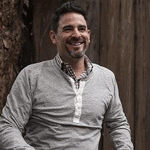
Born and raised in California, Jamie Almanzán is an expert in promoting equity in education. Educated in public schools, Mr. Almanzán received his B.A. in English Literature from California State University, Chico. After teaching a K-5 Special Day Class in Palo Alto, Mr. Almanzán decided to pursue a master’s degree from Stanford University’s Graduate School of Education. His graduate work focused on instruction for English language learners and curricular and instructional reform for equity in the classroom.
After earning his M.A., Mr. Almanzán returned to teaching as an ESL teacher at Jane Lathrop Stanford Middle School. There he helped promote equity on campus by establishing a campus goal and by co-founding the Equity Awareness Task Force for the Palo Alto Unified School District. He co-directed an after-school program designed to promote equity for underserved students and designed and directed an after-school program for Latino students. Mr. Almanzán has a great deal of experience as a speaker and facilitator. He helps educators explore diversity, anti-racism, and instructional strategies for ELL students. He is also a lecturer on the faculty of Notre Dame de Namur University’s Education graduate program. Currently he works as the Director of Teacher Development for Pacific Educational Group, a company that advocates school reform to ensure equitable learning opportunities and results for underserved student populations.
Benjie Howard
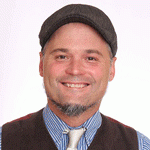
Benjie Howard grew up in a remodeled barn in the foothills of the North Cascade Range of Washington State, with a vast wilderness outside the back door. He went to school in his mother’s one-room country schoolhouse, where she offered an arts-based Waldorf education to rural kids.
In the early 1990s, Benjie left the Northwest for the Colorado River in Grand Canyon. There he began a twenty-year career as a boatman and wilderness educator. Inspired by the majestic desert landscape, the cultural diversity of the Southwest, the storytelling and American roots musical culture of boatmen, he began writing songs and later touring as a musician.
In the canyon, Benjie found the writings of Aldo Leopold, Paulo Freire, Roderick Nash, Laura Rendon, Wendy Rose, and others -- authors who may not be paired in a college syllabus, but who found their way onto his boat or into a waterproof can with the word “library” painted on the lid and tucked up under a rock near a waterfall. These books formed threads of thinking about psychological and spiritual connections to the landscape, to beauty, to the impact of colonialism in the Americas, and to the struggle for dignity, rights, and justice. In the Canyon, which transverses the traditional lands of numerous native peoples, Benjie gained a real and palpable connection to indigenous history and ways of knowing. These threads, along with themes of threatened landscapes, are woven into the fabric of Benjie’s poetry and music, written and performed as acts of resistance and inspiration - meant to reconnect things that have been severed.
In 2003, Benjie co-founded New Wilderness Project with his brother-in-law, Maketa Wilborn. They created a multimedia musical performance and began touring high schools across the United States. They also developed an arts based curriculum and a “Youth Voices” leadership program to engage young people in conversations about diversity, social justice, anti-bullying, and environmental stewardship.
With Benjie’s leadership, New Wilderness Project has performed and presented programs in 22 States, partnering with schools, universities, and nonprofits. He has recorded two albums of original songs and is currently in the studio with his musical partner, Wade Colwell-Sandoval, working on the third. Wade and Benjie created Borderless in 2013, a touring live performance exploring the intersections of wildness, social justice, indigenous rights, spirit, education, and the interc
Ivannia Soto
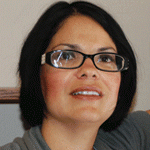
Ivannia Soto is Associate Professor of Education at Whittier College, where she specializes in second language acquisition, systemic reform for English language learners (ELLs), and urban education. She began her career in the Los Angeles Unified School District (LAUSD), where she taught English and English Language Development to a population made of up 99.9% Latinos, who either were or had been ELLs. Before becoming a professor, Dr. Soto also served LAUSD as a literacy coach and district office administrator. She has presented on literacy and language topics at various conferences, including the National Association for Bilingual Education (NABE), the California Association for Bilingual Association (CABE), the New York State Associate for Bilingual Education (NYSABE), and the National Urban Education Conference. As a consultant, Soto has worked with Stanford University’s School Redesign Network (SRN) and WestEd, as well as a variety of districts and county offices in California, providing technical assistance for systemic reform for ELLs and Title III. She is the co-author of The Literacy Gaps: Building Bridges for ELLs and SELs, her first book with Corwin Press, and the author of a variety of articles on providing appropriate instructional access for ELLs.
Yvonne Freeman and David Freeman
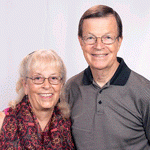
Dr. Yvonne Freeman and Dr. David Freeman are professors emeriti at The University of Texas Rio Grande Valley. Both are interested in effective education for emergent bilinguals. They present regularly at international, national, and state conferences. They have worked extensively in schools in the U.S. They have also worked with educators in Ecuador, Mexico, Colombia, Venezuela, Costa Rica, Argentina, Uruguay, Hong Kong, India, Indonesia, Lithuania, Mallorca, and Sweden.
The Freemans have authored books, articles and book chapters jointly and separately on the topics of second language teaching, biliteracy, bilingual education, linguistics, and second language acquisition. Their books, published by Heinemann, include ESL Teaching: Principles for Success 2nd edition, Essential Linguistics: What Teachers Need to Know to Teach ESL, Reading, Spelling, and Grammar, 2nd edition, Between Worlds: Access to Second Language Acquisition, 3rd edition, Academic Language for English Language Learners and Struggling Readers La enseñanza de la lectura y la escritura en español y en inglés en clases bilingües y de doble inmersión, 2nd edition, Teaching Reading and Writing in Spanish and English in Bilingual and Dual Language Classrooms 2nd edition, Dual Language Essentials for Teachers and Administrators, Closing the Achievement Gap: How to Reach Limited Formal Schooling and Long-Term English Learners, and Teaching Reading in Multilingual Classrooms.
In addition they have edited three books: Research on Preparing Inservice Teachers to Work Effectively with Emergent Bilinguals, Research On Preparing Preservice Teachers to Work Effectively with Emergent Bilinguals and Diverse Learners in the Mainstream Classroom: Strategies for Supporting All Students Across Content Areas.
Noma LeMoine
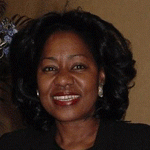
Dr. Noma LeMoine’s career in education spans 35 years. She is a nationally recognized expert on issues of language and literacy acquisition and learning in African American and other Standard English Learner Populations. She has written and spoken extensively on the topic and is a highly sought-after consultant to colleges, universities, and school districts nationwide. Dr. LeMoine holds a Ph.D. in Education from the University of Southern California with a specialization in Language, Literacy, and Learning and she holds three Master’s degrees.
For twenty years, Dr. LeMoine served as Director of the Los Angeles Unified School District’s Academic English Mastery Program and ten years as Director of the District’s Closing the Achievement Gap Branch. In this role, Dr. LeMoine oversaw implementation of the District’s closing the achievement gap initiatives intended to eliminate disparities in educational outcomes for thousands of under-achieving students. During this period the district saw improved academic achievement scores in both African American and Latino/Hispanic student populations. Dr. LeMoine also directed in 81 schools the District’s Academic English Mastery Program, which supported teachers, administrators, and paraeducators in effectively incorporating culturally and linguistically responsive pedagogy into core instruction. Under Dr. LeMoine’s visionary leadership, the Academic English Mastery Program became a national model for addressing the language, literacy and learning needs of African American and other students for whom Standard English is not native. The Program has been featured on 60 Minutes, in periodicals including Education Week and Teacher Magazine, in the PBS Documentary “Do You Speak American” and has been lauded by the linguistic community as the exemplary instructional model for addressing the language acquisition needs of African American Standard English Learners (SELs).
Dr. LeMoine has served over ten years as adjunct professor at several California universities and colleges. Her research interests and expertise include language and literacy acquisition in Standard English Learner (SEL) populations, methodologies for improving learning in culturally and linguistically diverse students, and the impact of teacher training on classroom instruction. Dr. LeMoine writes curriculum, designs and conducts professional development for teachers, administrators, paraeducators, and parents and consults with institution
Margarita Calderon
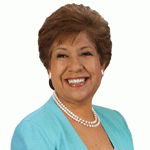
Dr. Margarita Calderón is a Professor Emeritus and Senior Research Scientist at the Johns Hopkins University’ School of Education. She serves on national panels and committees such as: National Research Council’s Committee on Teacher Preparation, National Literacy Panel for Language Minority Children and Youth, Carnegie Adolescent ELL Literacy Panel, The WIDA Formative Language Assessment Records for ELLs (FLARE) in Secondary School, National Institute for Family Literacy (NIFL) Multicultural Advisory, Professional Advisory Board of the National Center for Learning Disabilities, and ETS Visiting Panel on Research.
She is principal investigator in a 5-year study in middle and high schools called ExC-ELL on professional development of science, social studies, and language arts teachers of ELLs, and RIGOR for teaching language, reading and content to SIFE, ELLs in Special Education, and Newcomers funded by the Carnegie Corporation of New York. She is Co-PI with Robert Slavin on the 5-year randomized evaluation of English immersion, transitional, and two-way bilingual elementary programs funded by the Institute for Education Sciences/U.S. Dept. of Education. Other research has been funded by the U.S. Department of Education, U.S. Department of Labor, National Institutes of Health, and Texas Education Agency.
She has over 100 publications. Three recent publications are: The McGraw-Hill LEAD21 and Science Essentials for ELLs; Teaching Reading to English Language Learners, Grades 6-12: A Framework for Improving Achievement in the Content Area, and Designing, Implementing and Evaluating Two-Way Bilingual programs by Corwin Press. She is an international speaker and conducts comprehensive professional development programs throughout the country.